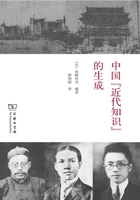
5 托尔斯泰(1828—1910)
最后看一下托尔斯泰。应该是对日俄战争之际倡导反战的托尔斯泰产生了共鸣,辜鸿铭在1906年将自己的著作《尊王篇》以及《日俄战争的道德原因》(Et Nunc, Reges, Intelligite!The Moral Causes of the Russia-Japanese War)赠送给托尔斯泰。由此两人开始通信。托尔斯泰给辜鸿铭的书信还以公开信的形式在报纸上发表。[20]后来在1908年,辜鸿铭把《中庸》、《大学》的译本赠送给托尔斯泰。托尔斯泰的日记里还记载着他曾经阅读过这些书。[21]
《中庸》第26章论述“至诚”(完全的诚的作用)[22]不会停止,最后引用了《诗经·周颂》的《维天之命》。
(诗云)于乎不显,文王之德之纯。盖曰文王之所以为文也,纯亦不已。
还歌颂道:“啊,多么伟大光辉啊,文王的品德是如此纯粹。”大概(这句诗)是在说明文王之所以是文王的精髓之所在。其纯粹的品德(与天地自然相同,作为完全的诚而发挥作用)永远不会停止。
It is again said:
How excellent it is,
The moral perfection of King Wen.
That is to say, this is the characteristic of the nobleness of the Emperor Wen.Moral perfection also never dies.
这里的注释如下:
Tolstoi says :—“In studying the men who have behind them a force which continues to act, we can see why these men in subjecting their individuality to reason and in giving themselves up to a life of love, never could doubt and never have doubted the impossibility of the destruction of life.”
托尔斯泰说:“请看那些留下了在死后依然继续发挥作用的力量的人,我们可以发现为什么他们可以做到,让个人的自我从属理性,委身于爱的生命,绝对不曾怀疑,也不会怀疑,生命永远不可能消失。”[23]
辜鸿铭在形式上应该也参考了托尔斯泰的《人生论》。《人生论》附有“补足”,从(一)到(三)。在辜鸿铭译《中庸》的初版中,作为附录,也在卷末从A到D,列举了能够对某一章的内容加以发展的文句。在附录B中有以下文句。
Confucius elsewhere speaking to one of his disciples, said:—“Shall I tell you what is true intellect and real understanding? To know what it is that you do and can know and to know what it is that you do not and can not know: that is true intellect and real understanding.”
这是《论语·为政》中的一段:“子曰:由,诲女知之乎。知之为知之,不知为不知,是知也。”而托尔斯泰的《人生论》的第12章则是这样开始的:“孔子说过,真正的知识在于,认为知道自己所知道的,不知道自己所不知道的。”另外,这本《人生论》的题词之一也是康德那句“璀璨星空”。